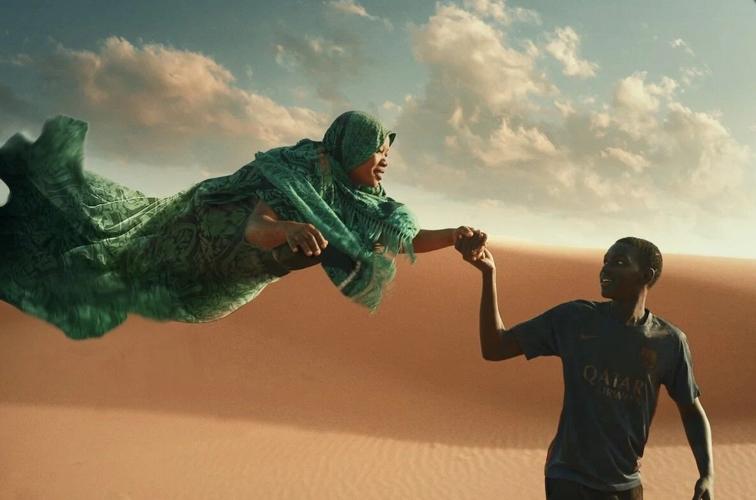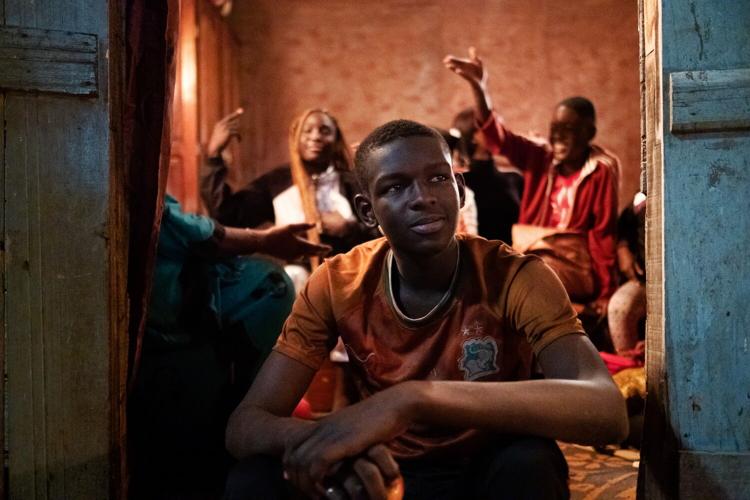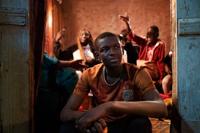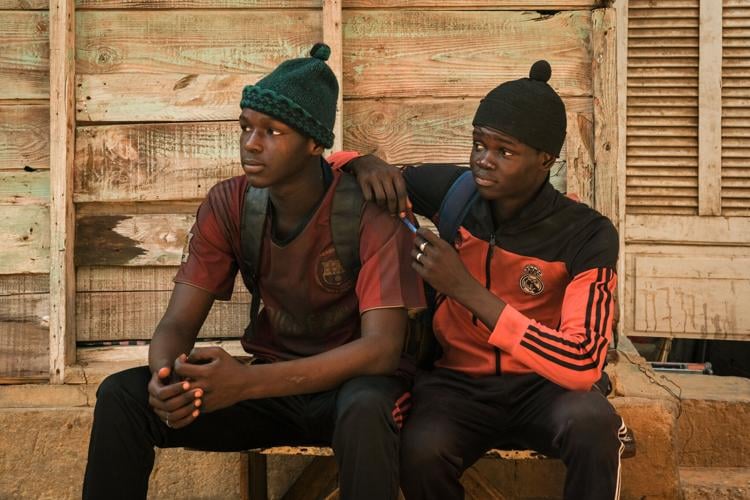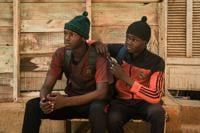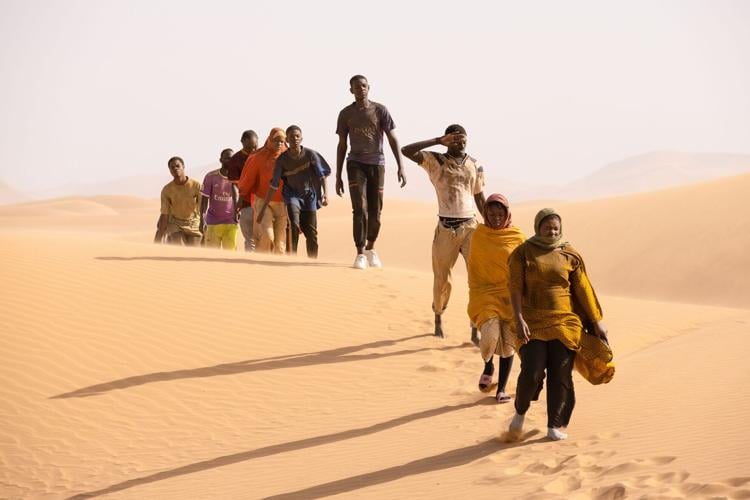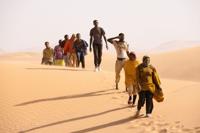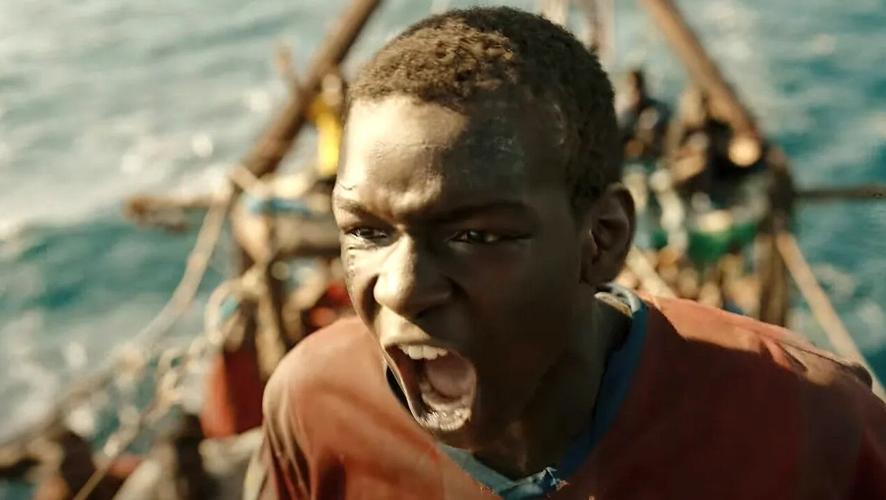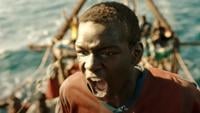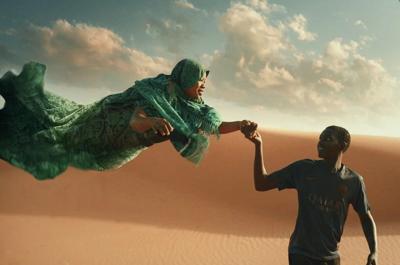Nominated for Best International Feature at the 96th Academy Awards, this film was the official submission from Italy. It was nominated for 15 David di Donatello Awards, which are Italy's equivalent to the Oscars. It won 7 David di Donatello trophies, including Best Film, Best Cinematography and Best Director for Matteo Garrone who has been making films for nearly 30 years. This is not his first feature to win so many David di Donatello Awards and it's not his first to be submitted to the Oscars. It isn't even his first to have a predominantly non-Italian cast, but it might be his first to have a predominantly Black cast, particularly a predominantly African cast, and it's mostly inspired by real-world events.
In 2015, there was a surge of refugees. Many came from Africa and Middle East countries. The refugees were fleeing through and from Africa, mainly due to conflicts like the War in Darfur and the War in Somalia, as well as the Syrian War, the Iraq War and the War in Afghanistan. Those half-dozen or so conflicts were all occurring and hit their apexes in the early 2010's, which caused the wave of escaping travelers. It was called the "2015 European migrant crisis" because most of the refugees ended up in Europe with Italy receiving a large chunk who came by boat.

A nonfiction look at those arrivals came with Gianfranco Rosi's Fire at Sea (2016), which was nominated for Best Documentary Feature and was also the official submission from Italy for Best Foreign Language Film at the 89th Academy Awards. That documentary was mainly told from the perspective of the Italian Coast Guard, as they rescued the refugees, along with Sicilians learning about the migrant crisis. This film is described as the "reverse shot" of that one, or the story told from the migrant's perspective. Technically, there was a film that already did that. Jonas Carpignano's Mediterranea (2015) beat this one to the punch. It even has a similar poster to Garrone's. Yet, Carpignano's film has a focus on what happens after the migrants arrive in Italy. It also didn't have a hopeful teenage spirit like this one does.
Seydou Sarr makes his feature debut as lead. Sarr was only a teenager when he shot the film. He plays a 16-year-old named "Seydou" who lives with his single mother and assortment of siblings and cousins. It seems as if all of his siblings are sisters. His only male relatives seem to be his cousins. In fact, his best friend is his male cousin who is of similar age. Seydou's home is a tiny shack in what could be described as the slums of Dakar, Senegal. Seydou's mom has a food stand where she works, but Seydou has to do manual labor in order to earn extra money to support his family. Yet, his passion is music, singing and songwriting. Sarr was even nominated for Best Song at the David di Donatello Awards.

Moustapha Fall co-stars as Moussa, the aforementioned cousin to Seydou. Moussa gives Seydou the idea that they could go to Italy or Europe in order to help Seydou pursue a career in music. He's not as much of a mama's boy as Seydou. Moussa loves his family, but he's ready for the more glamorous or certainly more wealthy life that he sees on his phone of White people in Europe. He's also the one who easily dismisses the warnings of people that the journey will be treacherous.
It's appreciated that Garrone made his characters teenagers who are not fleeing a war-torn country or crushing poverty. It's not like Angelina Jolie's First They Killed My Father (2017) or Cary Fukunaga's Sin Nombre (2009). The reason Seydou and Moussa leave isn't because their lives and livelihood are being threatened or because they need to leave in order to survive like most of the refugees depicted in Mediterranea and Fire at Sea. Seydou and Moussa simply have a dream, a beautiful dream of making music and that is what's motivating them, a love of something, not the fear of something.

Sarr won the Marcello Mastroianni Award at the 80th Venice International Film Festival where this film premiered. The Mastroianni Award recognizes young or emerging actors for incredible performances. I would agree that Sarr is absolutely deserving. He has to go from a mama's boy to this towering figure who takes command and has to lead a large group of people. The steps, the literal steps along the way, that break him and build him back up are powerful to behold here. The character of Seydou really goes on a journey from the deserts of West Africa to the waters of the Mediterranean Sea.
There are a lot of horrors in this film and Garrone doesn't shy away from the brutality of it all. However, Garrone never loses the warmth of humanity, as well as the light and hope in his protagonist's eyes. Sometimes, it's through fantasy or dream sequences. Other times, it's simply putting the camera in close-up of Sarr's beautiful face. Timothée Chalamet got an Oscar nomination for Best Actor for Call Me By Your Name (2017), which has a final scene where we see the camera holding still on Chalamet's face. Garrone does a similar thing where the final shot is Sarr's face and Sarr's performance in it was even better than Chalamet's.

Shoutout to Issaka Sawadogo who plays a migrant named Martin who becomes instrumental in a sequence that taps into Garrone's mafia-movie roots. Martin emerges as a father-figure for Seydou in the middle of the film. It shows that there can still be love and compassion even in a Hell-like situation and Garrone's direction through it all is lovely. He even allows humor and comedy between Seydou and Moussa where we really connect to their relationship. The penultimate scene is sheer chaos, but Garrone crafts it so well in order to show Seydou's rise and it was brilliant.
Not Rated but contains violence.
Running Time: 2 hrs. and 1 min.
Available on VOD.

